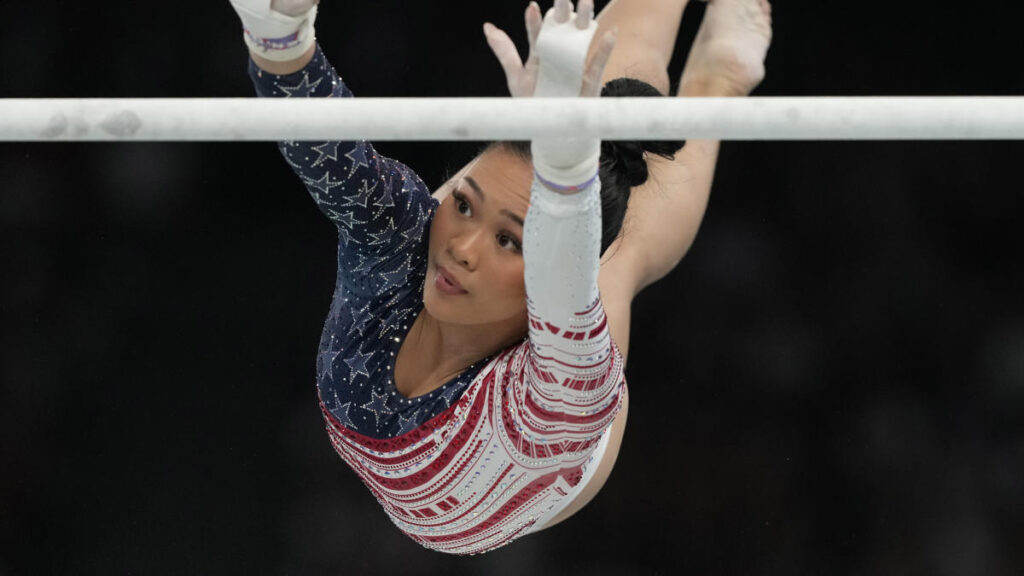Medal table | Olympic Games Calendar | How to watch | Olympic News
PARIS — For months, Noah Lyles has been chasing the spotlight, inviting Netflix cameras to follow him wherever he goes, walking the runways of Milan and Paris and appearing on late-night talk shows.
Whenever a microphone or camera is nearby, Lyles doesn’t hesitate to lay out his grandiose goals for the Paris Olympics. The fastest man in America has told anyone who will listen how he plans to eclipse the legendary Usain Bolt, how he hopes to win four Olympic gold medals and how he’d like to go home as a world record holder.
“Now you’re going to climb Mount Rushmore,” he recently told The Tonight Show’s Jimmy Fallon. “Now you’re the greatest of the greats.”
Lyles’ first chance to put his bold pitch into practice finally came Sunday night, when 80,000 cheering fans packed the Stade de France to watch the glamour of track and field. Lyles took his place alongside eight rivals in the Olympic 100-meter final. For one, the title of fastest man in the world was just a sub-10-second sprint away.
Lyles, ever the showman, emerged from the Stade de France tunnel with white pearls in his hair and fingernails decorated in red, white and blue. When introduced by the announcer, he ran 15 metres down the track, jumping up and down and urging the crowd to make more noise.
After the starter’s gun, Lyles surprisingly took off and accelerated as if his toes were being propelled by a rocket. He sped down the track, leaned over the finish line and watched the video screen, waiting to see if he had done enough to win his first career Olympic gold medal.
It was… barely more than a blink.
Lyles won the United States’ first gold medal in the men’s 100m in 20 years, crossing the line in a personal best of 9.79 seconds. Jamaica’s Kishane Thompson was second, five thousandths of a second behind the American. American Fred Kerley won the bronze medal in a season-best time of 9.81 seconds.
As they waited for the video board to reveal the winner, Thompson said Lyles told him, “Kishane, you got it.”
“No, I’m not sure,” the young Jamaican replied.
Thompson knew he had passed runners on both sides of him, but he wasn’t sure about Lyles in Lane 7.
“It was so close,” Thompson said.
As Lyles said earlier this summer at the U.S. Olympic trials: “I thrive on big moments. The bigger they are, the faster I run.”
Lyles’ first Olympic gold medal is a major step toward his successful journey from Olympian to icon, from track celebrity to celebrity. The bar to achieve mainstream status in his sport is incredibly high. It’s not enough to break Michael Johnson’s American record in the 200m two years ago, or to pull off a sprint hat-trick at the world championships last August.
Lyles had to excel in the area that matters most to American viewers. Fair or not, Lyles must follow in the footsteps of a Bolt, a Simone Biles, a Michael Phelps. He must rack up gold medals, world records and heroics on the Olympic stage.
The fact that Lyles was able to capture the Olympic gold medal in the 100m is a hugely encouraging sign for the rest of his Paris campaign. The 200m is Lyles’ specialty, his first love, the event that maximizes his talents. He maintains his speed as well as any sprinter since Bolt, which usually allows him to swallow up whoever is in front of him as he rounds the bend and races toward the finish line.
The 100m is Lyles’ “side chick,” as he puts it, the event that doesn’t come naturally to him but one he’s worked tirelessly to master. Knowing he struggles to accelerate as fast as other world-class sprinters, Lyles has continually tweaked his start. The mission has been to find a way to stay in touch at 30 meters without sacrificing Lyles’ ability to reach and maintain his top speed.
On Saturday morning, in the 100m preliminaries, Lyles got off to a slow start and had to fight his way to second place behind defending NCAA champion Louie Hinchcliffe of Great Britain. He said he expected the rest of the field to “fall in line” behind him and wouldn’t make the mistake of underestimating his opponents again.
“What time do you think you need to run to win the gold medal?” one reporter asked.
“I don’t know, but I’ll do it,” Lyles said deadpan.
Lyles ran faster in Sunday night’s first semifinal, but he again crossed the line in second. Jamaican Oblique Seville clocked a personal best of 9.81 seconds to edge Lyles by two-hundredths of a second, looking to the American’s left at the end of the race as if to say, “Where are you?”
Three years ago, during the last Olympic cycle, Lyles failed to seize his moment. Maybe it was the lack of crowds to draw his energy from during COVID. Maybe it was a knee injury that interrupted his training. Maybe it was something else.
Whatever the reason, Lyles failed to qualify for Tokyo in the 100m. He then settled for a bronze medal in the 200m, his signature event, when Canadian Andre De Grasse and fellow American Kenny Bednarek overtook him in the Olympic final.
Lyles called his bronze medal in Tokyo “boring.” At the U.S. Olympic trials earlier this summer, he said the sight of that medal motivated him.
“I’m like, ‘Yeah, I think I’m doing enough,'” Lyles said. “Then I turn around and look at the medal and say, ‘Okay, back to work.'”
After delivering on his promises, Lyles finally got the Olympic gold medal he so desperately wanted.

